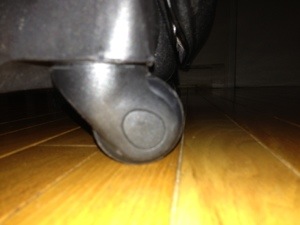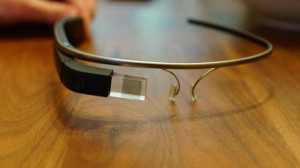To thank you all, who have stuck with me through this, my 150th post, I thought I would tackle a serious topic for a change. -MK
It was cold in Washington, D.C. Cars took longer to warm up in the morning and made people late to work. Heavy coats on backs of chairs at restaurants made it hard to squeeze by. The cold air made people’s hands very dry. But for the government, it was business as usual.
“Sir, what are we going to do about the fiscal cliff?” the intern asked the Director.
“Hold on a minute. I’m moisturizing. This cold air turns my hands into parchment.” The Director squeezed some hand moisturizer on the knuckles of either hand, and then rubbed his knuckles together, with the palms of hands facing out.
“This way,” the Director said, “I don’t get that greasy moisturizer on any official documents. It’s a good thing the Declaration of Independence was signed in July, otherwise there would have been greasy moisturizer stains on it. Imagine what that would have done to liberty. Now, what were we talking about?”
“The fiscal cliff, sir.”
“Ah, yes. I heard something about that while I was in line at Krispy Kreme. What is it again? Some kind of landmark?”
“The fiscal cliff is the colloquial term for the set of austerity measures that automatically go into place at the end of the year as part of the debt ceiling compromise of August, 2011, sir.”
“What you just said is all Greek to me.”
“Sir, unless we do something about the federal budget, government programs will be cut and taxes raised, automatically on January 1, without any votes or debate.”
“Oh, so this cliff isn’t a real place? Like, I can’t get a bumper sticker that says ‘This car drove off the Fiscal Cliff’?”
“No, I don’t believe so, sir.”
“Bummer. All right, let’s see. Where can we find money?” The Director leaned back in his chair and looked up at the ceiling and drummed his fingers on the sides of his neck. “Money…money…money. We…need…money.” He closed his eyes as if he was making a wish before blowing out birthday candles. Suddenly he opened his eyes and sat up.
“I’ve got it!” he said, and told the intern of his plan.
It took a little while for people to get used to the idea of the government engaging in extreme couponing. An entire new bureau had to be built and staffed with the most extreme couponers in the country, who had to be lured away from their home communities with laundry detergent and frozen steakums. Conservatives complained that the framers of the Constitution had never intended the federal government to save money. Liberals complained that the program was going to take coupons away from teachers and firefighters.
But when the Bureau of Extreme Couponing purchased a fleet of stealth bombers and new toilet seats for every restroom in the Capitol for only $1.37, the people embraced the program with open arms. Health care costs plummeted from 17% of GDP to less than the price of a Netflix subscription. Just by checking the Presidential Sofa for loose change, the federal government was able to restart the shuttle program, and procure canned peaches through 2043.
They started televising the purchases at the checkout line. Millions of viewers would sit on the edge of their seats, holding hands, watching the digits on the price display. In one episode, the employee at the register called out the names of each public good right before scanning it.
“Highway programs…[beep]…National Park Service…[beep]…Coast Guard—”
“Wait, I have a coupon for that,” the Federal Couponer said. Dramatic music played while the Couponer rifled through a stack of coupons in a little zippered purse. The employee looked bored and the shoppers behind looked around for a line that was moving faster.
When the coupon was located, a fanfare was played and the price on the display went from $487 million to zero. And as if it could not get any better, United States Postal Service pensions were buy-one-get-one that week.
“Sir, the Extreme Couponing program is a success!” the intern said. “This year we’re going to post a budget surplus along with 17 million tons of spaghetti sauce.”
“Excellent,” the Director said. “But you look troubled.”
“Well, sir, I just don’t understand how it works. The money that we’re saving, that’s great, really great. But, I mean, where are these coupons coming from?”
The Director wrinkled his brow, and stared out the window, and rested his chin on his hand, and considered the question that was his awesome responsibility to answer for the good of the nation. Suddenly his eyes gleamed and he snapped back to face the intern.
“Manifest destiny,” the Director said, and then picked up the phone to order a pasta lunch for the third time that week.


